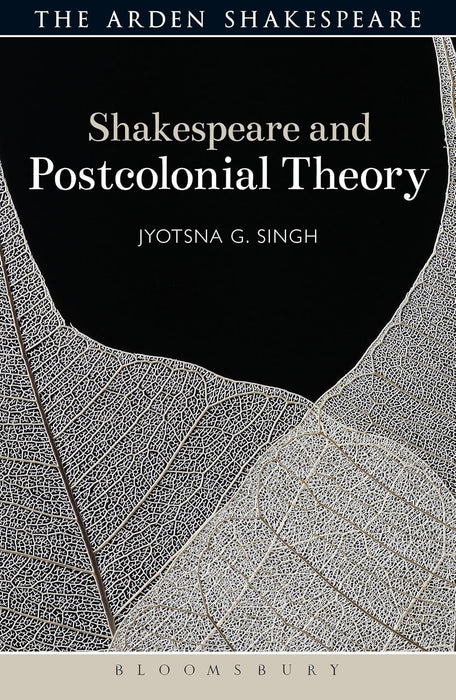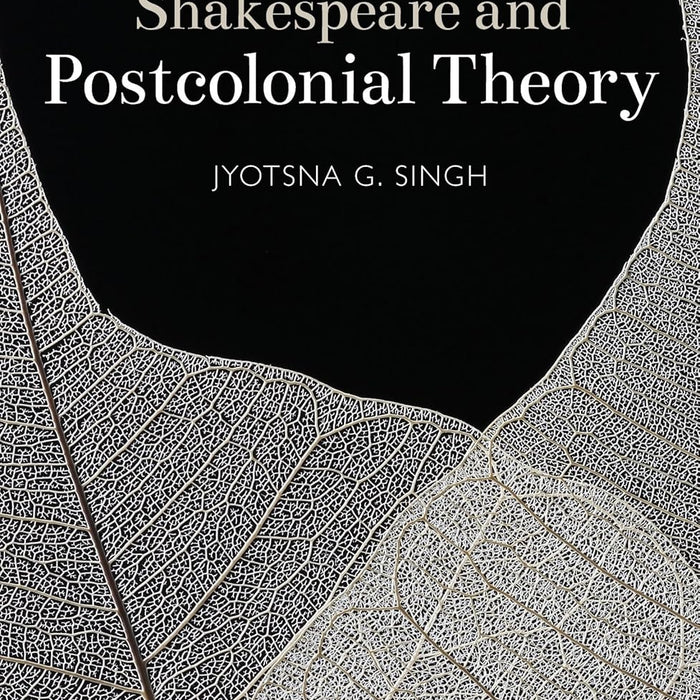Shakespeare and Postcolonial Theory by Jyotsna G Singh (Author)
- Publisher: ENGLISH GENERAL BOOKS
- Availability: In Stock
- SKU: 53587
- Number of Pages: 264
Rs.625.00
Rs.850.00
Tags: best books , Best Price , Best Selling Books , BNB , booksnbooks , colonial discourse , colonial narratives , colonialism and literature , cross-cultural exchanges , cultural hybridity , cultural imperialism , cultural studies , decolonization in literature , Jyotsna G Singh , NEWBOOKSNBOOKS , newbooksnbooks.com , ONLINE BOOKS , Online Bookshop , postcolonial critique , postcolonial identities , postcolonial interpretations , postcolonial literature , postcolonial readings , postcolonial theory , postcolonial theory in Shakespeare , power and identity , race and colonialism , race and representation , resistance literature , Shakespeare and empire , Shakespeare and Postcolonial Theory , Shakespeare in postcolonial context , Shakespeare studies , Shakespeare's global influence , Shakespeare's legacy , Shakespearean plays
Shakespeare and Postcolonial Theory by Jyotsna G. Singh is an insightful academic work that explores the intersections between Shakespeare's plays and postcolonial theory. Singh examines how Shakespeare’s works can be read through the lens of colonialism, empire, and the power dynamics that shaped both the Elizabethan era and the postcolonial world. By analyzing plays such as The Tempest, Othello, and The Merchant of Venice, the book highlights how issues of race, identity, and colonialism are embedded in Shakespeare’s texts, often in ways that reflect and complicate modern postcolonial struggles. Singh’s scholarly approach recontextualizes Shakespeare’s work, bringing fresh interpretations that challenge traditional readings of the plays. This work is particularly valuable for students and scholars of both Shakespeare and postcolonial studies, offering new perspectives on familiar texts and highlighting the relevance of Shakespeare in understanding global histories of empire and colonization.
Key Points:
-
Shakespeare's Relevance to Postcolonial Theory: The book connects Shakespeare's works to postcolonial discourse, showing how themes like race, empire, and power dynamics are crucial to understanding the legacy of colonialism.
-
Postcolonial Readings of Shakespeare: Singh provides a detailed analysis of how Shakespeare’s plays, including The Tempest and Othello, can be interpreted through a postcolonial lens, highlighting colonialist ideologies and racial constructs present in the texts.
-
Theories of Race and Identity: The book addresses how Shakespeare’s portrayal of characters from different racial and cultural backgrounds reflects early European notions of race and the complexities of identity, which have become central to postcolonial theory.
-
Empire and Power Dynamics: Singh explores the imperialist ideologies embedded in Shakespeare’s works, particularly how characters interact within the power structures of colonial and postcolonial contexts.
-
Challenging Traditional Interpretations: The book critiques traditional readings of Shakespeare, which often overlook the colonial themes in his works, and advocates for a more nuanced understanding of how his plays engage with issues of domination, exploitation, and race.
-
The Global Context: Singh emphasizes the enduring global relevance of Shakespeare's work, showing how the playwright’s exploration of empire continues to resonate in postcolonial studies and discussions of globalization.
-
Interdisciplinary Approach: The book integrates ideas from history, literature, and cultural studies to offer a comprehensive postcolonial reading of Shakespeare’s plays, highlighting the interdisciplinary nature of postcolonial theory.
-
The Role of The Tempest in Postcolonial Studies: Singh dedicates significant attention to The Tempest, positioning it as a key play for understanding colonial themes such as the “othering” of indigenous peoples and the dynamics of power between colonizer and colonized.
-
Impact on Modern Shakespearean Studies: The book contributes to the ongoing transformation of Shakespearean scholarship by incorporating postcolonial criticism, offering scholars a framework to engage with Shakespeare from a contemporary global perspective.
-
Educational Value: The book is an essential resource for students of both Shakespeare and postcolonial theory, offering insightful analysis that enhances the understanding of both fields and their interconnectedness.
Conclusion:
Shakespeare and Postcolonial Theory by Jyotsna G. Singh provides a compelling reexamination of Shakespeare's work in light of postcolonial thought. By exploring themes of race, empire, and power, Singh redefines how Shakespeare’s plays can be read and interpreted, offering new perspectives that challenge traditional scholarship. This book is an invaluable contribution to the fields of Shakespearean studies and postcolonial theory, offering scholars and students a deeper understanding of the global and enduring relevance of Shakespeare’s engagement with colonial histories and power structures.
════ ⋆★⋆ ═══
Writer ✤
Jyotsna G. Singh (Author), Evelyn Gajowski (Series Editor)

























